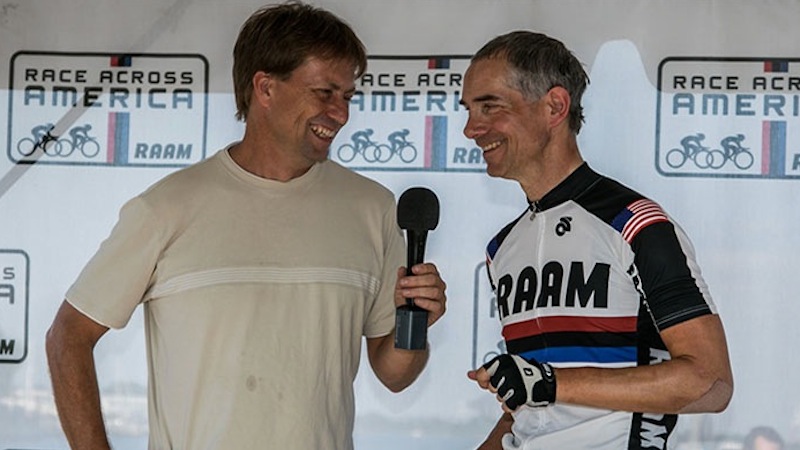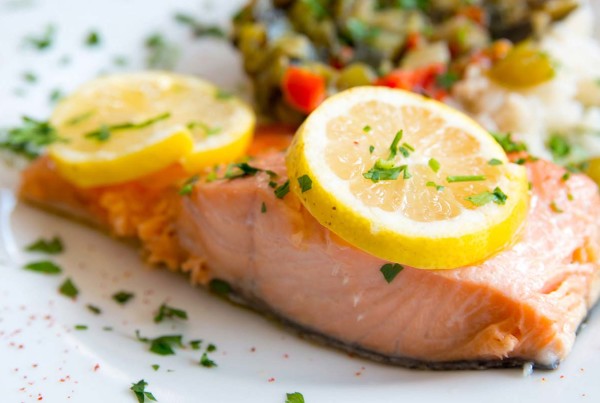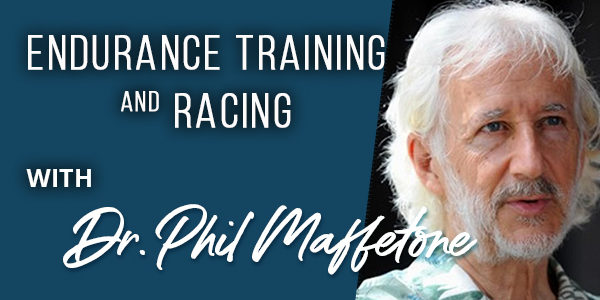
Martin Gruebele embodies the theory and practice behind the MAF Method.
If success is more science than mystery, Martin Gruebele may be the living example.
The 52-year-old German-born physical chemist and biophysicist won the masters title in cycling’s 2016 Race Across America, finishing the 3,000 miles in 11 days and 49 minutes.
Martin, who holds a Ph.D. in Chemistry, is a professor at the University of Illinois. His awards in the field of science include numerous prestigious honors including the Friedrish Wilhelm Bessel Research Prize, and the Camille and Henry Dreyfus Foundation Fellowship. His achievements as an athlete include, in addition to the RAAM title, a 7th-place overall finish among 430 Americans in the 1,200-kilometer Paris-Brest-Paris bike race in 2015, and national and international rankings as an Ironman triathlete.
If those feats weren’t enough, he’s now racking up masters wins on the running trails as an ultramarathoner. In 2016 he added masters wins at Des Plaines River and Hennepin Canal trail runs, both 50 milers in Illinois. He also recently finished his first 100-miler, clocking in at under 20 hours and placing 21st out of 248 entrants in the Tunnel Hill 100.
The science behind his athletic success? MAF.
Martin took up endurance sports as a hobby at the age of 40, buying his first bike in 2004. When he brought the bike back for its one-month tuneup, the mechanic at the shop was astounded that a novice had already put 800 miles on it.
But he didn’t stop there. Before long he was racking up mega-miles on the roads, and then he added running, and eventually swimming and triathlon. While he found success at all these sports, it wasn’t without a price. Martin often suffered nagging minor injuries that would sideline him from time to time.
Martin’s sister, concerned about his health and possible overtraining, gave him a copy of The Big Book of Endurance Training and Racing by Dr. Phil Maffetone. The book was left unread on his coffee table for months until, sidelined by injury in 2012, he decided to pick it up.
As he sifted through the information, Martin was immediately drawn in by the scientific feel to the book. He began to see how his previous regimen of mostly high-intensity training — intervals and other hard efforts — were at the root of his injuries and were also holding him back athletically.
He decided to embark on an all-MAF style of training, dumping the intervals in favor of the MAF 180 Formula, and using the MAF Test to track his progress. He immediately began to feel better and get faster training at a lower heart rate.
Over a seven-month period, Martin improved his MAF Test from about 9:10 to 6:55, while his resting heart rate fell from about 60 beats per minute to 40.
One thing particularly striking was the scientist had been tracking data on his workouts for years. Now with the new MAF numbers pouring in, he was able to scientifically plot the improvements in his performance. Plus, he was now injury-free.
In 2016, he entered the RAAM, called the “Toughest Bike Race on Earth.” He was one of 14 masters cyclists in the race, many of them more experienced. After the third day of the race he was 150 miles behind the leader in his category. However, Martin had been riding 20 hours a day and sleeping four hours, while the other cycles were riding 22 hours and sleeping two hours. By day eight, he was more than 100 miles ahead of all of them, using superior fat-burning abilities to lengthen his lead and finish sixth-place overall and first in the masters division.
Martin’s book, “Masters RAAM — A Winning Strategy” describes the plan he used to win this title as well as his personal experiences from the race.
With the 100-Mile Tunnel Hill 100 ultra run now on his resume, Martin now has sights set on the Badwater Ultramarathon, which some say is the world’s toughest footrace. The race is a 135-mile course starting in the searing summer heat at 279 feet below sea level in California’s Death Valley and ending at an elevation of 8,360 on Mount Whitney. Entrance to the race is exclusive and by application only.








